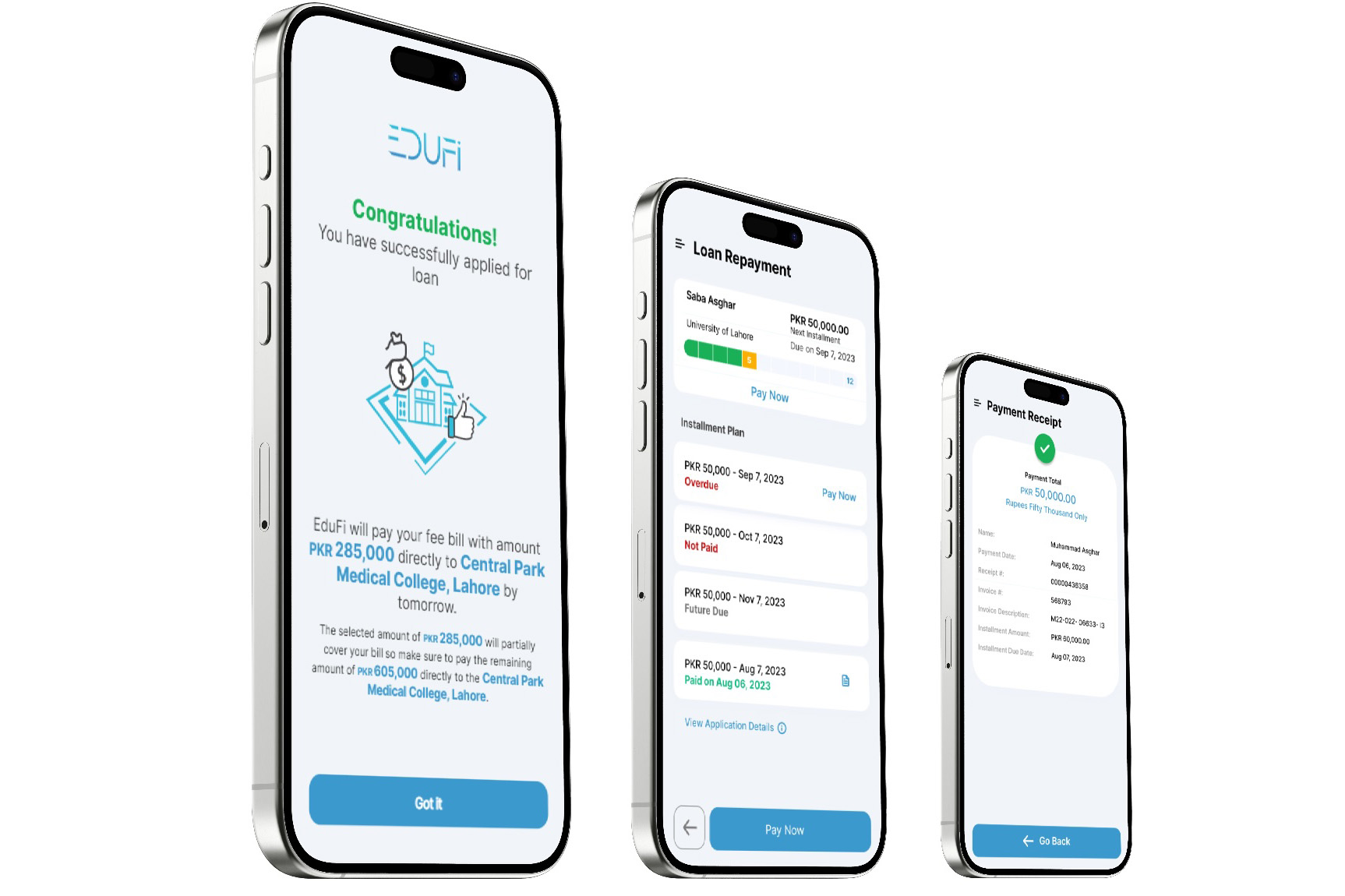Introduction to EduFi
Taking out a loan to attend college is an investment in your future. But unlike in the United States, students in Pakistan don’t have easy access to college loans. Instead, most families must stomach higher interest rates for personal loans that can require collateral like land or homes. As a result, college is inaccessible for many students. It’s one reason why only about 13 percent of Pakistani students attend college.
The Problem with Current Loan Systems
In Pakistan, some targeted programs offer financial support for students with exceptionally high grades who can’t afford college, but the vast majority of families must find other ways to finance college. Most students and their families have to get personal loans from standard banks, but that requires them to open a bank account, which could take two months. Fees in Pakistan’s education sector must be paid soon after the requests are sent, and by the time banks accept or reject you, the payment could already be late. Private loans in Pakistan come with much higher interest rates than student loans in America. Many loans also require borrowers to put up property as collateral. Those challenges prevent many promising students from attending college at all.
How EduFi Works
EduFi, founded by Aleena Nadeem, is offering low-interest student loans to a broader swath of Pakistanis. EduFi uses an artificial intelligence-based credit scoring system to qualify borrowers and pay colleges directly. The borrowers then make monthly payments to EduFi along with a service fee of 1.4 percent — far lower than what is available for most students today. EduFi has developed an algorithmic credit scoring system that considers the borrower’s financial history then makes payments directly to the college on their behalf. EduFi also works directly with colleges to consider the students’ grades and payment history to the school.
The Benefits of EduFi
EduFi’s approach qualifies far more people for loans compared to banks and does so five times faster. That makes college more accessible for students across Pakistan. By not taking collateral, EduFi really opens up the credit space to new people who would not have been able to get a bank loan. Easier credit gives the average middle-class individual the ability to change their families’ lives. EduFi received its non-banking financial license in February 2024 and has since gained early traction through word of mouth.
Expansion and Future Plans
After further proving out its model, EduFi plans to expand to Saudi Arabia. Eventually, it plans to offer its loans to students throughout the Middle East, and Nadeem believes the global student loan system could be improved using EduFi’s approach. EduFi is modeled after SoFi in San Francisco, but it’s really a combination of SoFi and Grameen Bank in Bangladesh, which extends credit to lower-income people to lift them out of poverty.
Conclusion
By helping people extend their education and reach their full potential, Nadeem believes EduFi will one day accelerate the development of entire nations. Education is the core pillar from which a country stands. You can’t progress as a country without making education as accessible and affordable as possible. EduFi is achieving that by directing capital at what is frankly a starving education sector.
FAQs
- What is EduFi?
EduFi is a company that offers low-interest student loans to students in Pakistan. - How does EduFi work?
EduFi uses an artificial intelligence-based credit scoring system to qualify borrowers and pay colleges directly. - What are the benefits of using EduFi?
EduFi’s approach qualifies far more people for loans compared to banks and does so five times faster, making college more accessible for students across Pakistan. - What are EduFi’s future plans?
EduFi plans to expand to Saudi Arabia and eventually offer its loans to students throughout the Middle East. - How can EduFi help countries?
By helping people extend their education and reach their full potential, EduFi can accelerate the development of entire nations.











